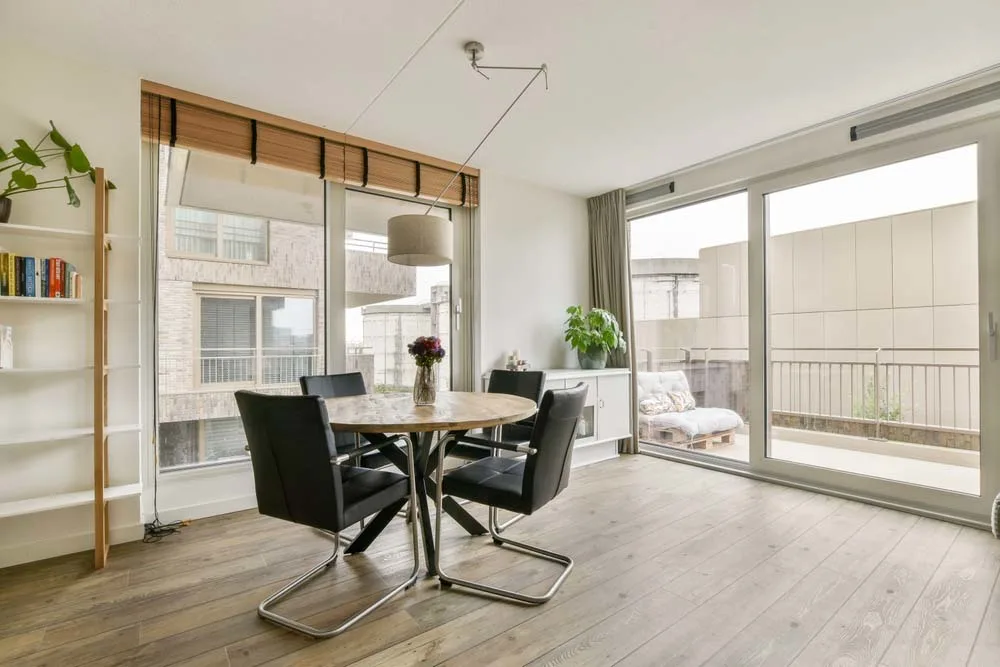If you’re planning to own a property and considering listing this on Airbnb, one thing that you are probably thinking about is “how much can you make on airbnb”. Toronto is the largest city in Canada which became a magnet for tourism due to its incredible multiculturalism and center of business.
Because of this, there is a consistent demand for short term apartment rentals, which many homeowners and investors are exploring Airbnb as a solid income stream. But, before purchasing a unit or upgrading your property space, it is important to assess whether the potential Airbnb income aligns with the local demand and ongoing operating costs.
In this guide, we’ll walk you through on how to calculate Airbnb profitability in Toronto, what affects your earnings, and Airbnb estimator tools you can use to make realistic income projections. By the end of reading this article, you will not just only have an airbnb estimate but you will also have a clear roadmap on maximizing your returns and minimizing your risk.
Understanding the Airbnb Income and Profit for Property Owners
An Airbnb income is the total earnings that you get on your long term rental or short term apartment rentals. On the other hand, Airbnb profit is the total earning after deducting all your operating expenses from the Airbnb income. These may include expenses such as cleaning fees, utilities, taxes, and other costs.
Airbnb Average Income in Toronto
To know the Airbnb average income, Airbnb property managers must conduct a thorough research on the market and pricing listing on the specific location of the property. Airbnb profit margin is tight which means a property typically earns 20% of rental revenue, primarily from the nightly rate and occupancy may vary depending on season and location.
Short-term apartment rentals in Toronto, such as those listed on platforms like Airbnb, represent a lucrative investment, bringing in an average of CA$37,000 in annual revenue for a typical host in 2023. These properties are booked for a significant portion of the year, around 252 nights, maintaining a solid median occupancy rate of 69% and charging an average of CA$154 per night. In September to August 2024, the average annual short term apartment rentals revenue in Toronto was CA$41K
Overall, the market offers compelling returns for investors who focus on efficient Airbnb management alongside strategic pricing and maintenance.
Metrics for Evaluating Profit of Vacation Rental Property Management
There are three (3) key financial metrics that Airbnb property managers use in assessing Airbnb profitability. These are essential for Airbnb management.
Airbnb Rental Income
These are the total Airbnb estimated earnings from the rental properties. This includes the nightly rates, miscellaneous fees, upsells, and any add-on charges.
Airbnb Estimate Occupancy Rate
This is the metric on how your rental property is booked.
Airbnb Property Management Cost
These are the operating costs or expenses related to maintaining and managing your rental property. This usually includes costs such as labor, taxes, insurance, utilities, maintenance, and even services from virtual property management or Airbnb property management.
Airbnb Profit Formula
To find the airbnb income, the basic Airbnb profit formula is:
Net Annual Profit = Gross Annual Revenue – Total Annual Expense

How to Estimate Airbnb Income: Gross Annual Revenue
Your gross revenue is the total money your bookings bring in before any expenses are deducted. This is where to you can use tools like an airbnb estimator, but you need to know what data they use:
- Average Daily Rate (ADR): Recent market analysis for Toronto indicates the median Average Daily Rate (ADR) is around C$154. However, top-performing properties (top 10%) can command rates of C$306+ per night . Your rate depends heavily on your unit’s location, size, and amenities.
- Occupancy Rate: Toronto’s median occupancy rate is reported around 47.3%. However, successful listings often achieve rates closer to 68% due to optimized management and competitive pricing. Remember, Toronto regulations cap entire-home rentals at 180 nights per year, which automatically caps your maximum potential occupancy at roughly 49.3% (180/365).
- The Gross Revenue Calculation:
Gross Revenue = ADR X Occupancy rate X Number of Available Nights
Calculating Airbnb Estimate Annual Expenses
- Fixed Property Costs (If Applicable)
- Mortgage/Rent: Your monthly housing payment.
- Property Taxes: Varies by location and assessment.
- Insurance: Short-term rental insurance is more expensive than standard homeowner’s insurance.
- HOA/Condo Fees: Make sure your building allows short-term rentals before purchasing.
- Regulatory & Compliance Costs
Toronto has specific, non-negotiable rules you must factor in. This includes different Airbnb license Toronto requirement such as Annual Short-Term Rental Registration Fee, Municipal Accommodation Tax (MAT), Licensing & Compliance

- Operating & Variable Costs These costs fluctuate with your occupancy rate and directly impact your airbnb profit margin. This typically includes cleaning services, utilities, consumable or supplies, maintenance or repairs, service fee from platform providers.
- Airbnb Property Management Costs Airbnb management Toronto fees typically range from 15% to 25% of your booking revenue, with some providers advertising rates starting from 12% for basic services.
Importance of Airbnb Property Management Service Provider
Managing your own property consumes a lot of your time. Outsourcing the best airbnb management turns a high-effort operation into a passive investment. This fee often pays for itself by boosting your ADR, optimizing compliance, and ensuring your unit utilizes the full 180 nights available for short term rental management, mid term rental management, or a long term rental setup.
Other Factors Affecting your Airbnb Profitability in Toronto
Toronto’s Airbnb market is competitive but rewarding when managed strategically.
Location
There are specific locations in Toronto that command higher nightly rates and occupancy. Considering your location is important most especially in targeting tourist.
Seasonality
There are seasons where Toronto experiences fluctuations. Identify and leverage them so you can significantly boost your earnings.
Type or Rental
You must consider the type of rentals for a specific target market.
- Short-term rental management: Ideal for maximizing returns but requires active oversight.
- Mid term rental management: Targets corporate guests and digital nomads staying for weeks or months.
- Long-term rental: More stable income, but typically lower than Airbnb’s short-term profits.
Airbnb Estimator To Help You Estimate Airbnb Income
If you want data-driven projections, consider asking a professional for an Airbnb estimate such as Guestable. Guestable is a Toronto-based vacation rental property management company that provides best Airbnb management including real-time Airbnb income insights and helps you in property listing. They calculate Airbnb profit margin and fine-tune pricing to stay competitive and up to date on how much can you make on Airbnb.

Final Thoughts
Calculating your Airbnb income in Toronto isn’t just about computing numbers, it is also about understanding market trends, regulations, and guest expectations. With the right strategy and support from professionals like Guestable, your property can become a consistently profitable source of income. It is better to do your research or consult with a professional for detailed calculation of Airbnb estimated earnings before listing your property.
Frequently Asked Questions
If you don’t have the time or experience to manage bookings, hiring a short term rental management company or a virtual property management service can be a game-changer.
While the national average income across all hosts is modest (around CA$9,600), hosts operating full-time entire-home rentals in major markets like Toronto typically generate significantly higher gross annual revenues, often between CA$37,000 and over CA$60,000 for top performers. It is highly suggested to partner with Airbnb property management like Guestable.
